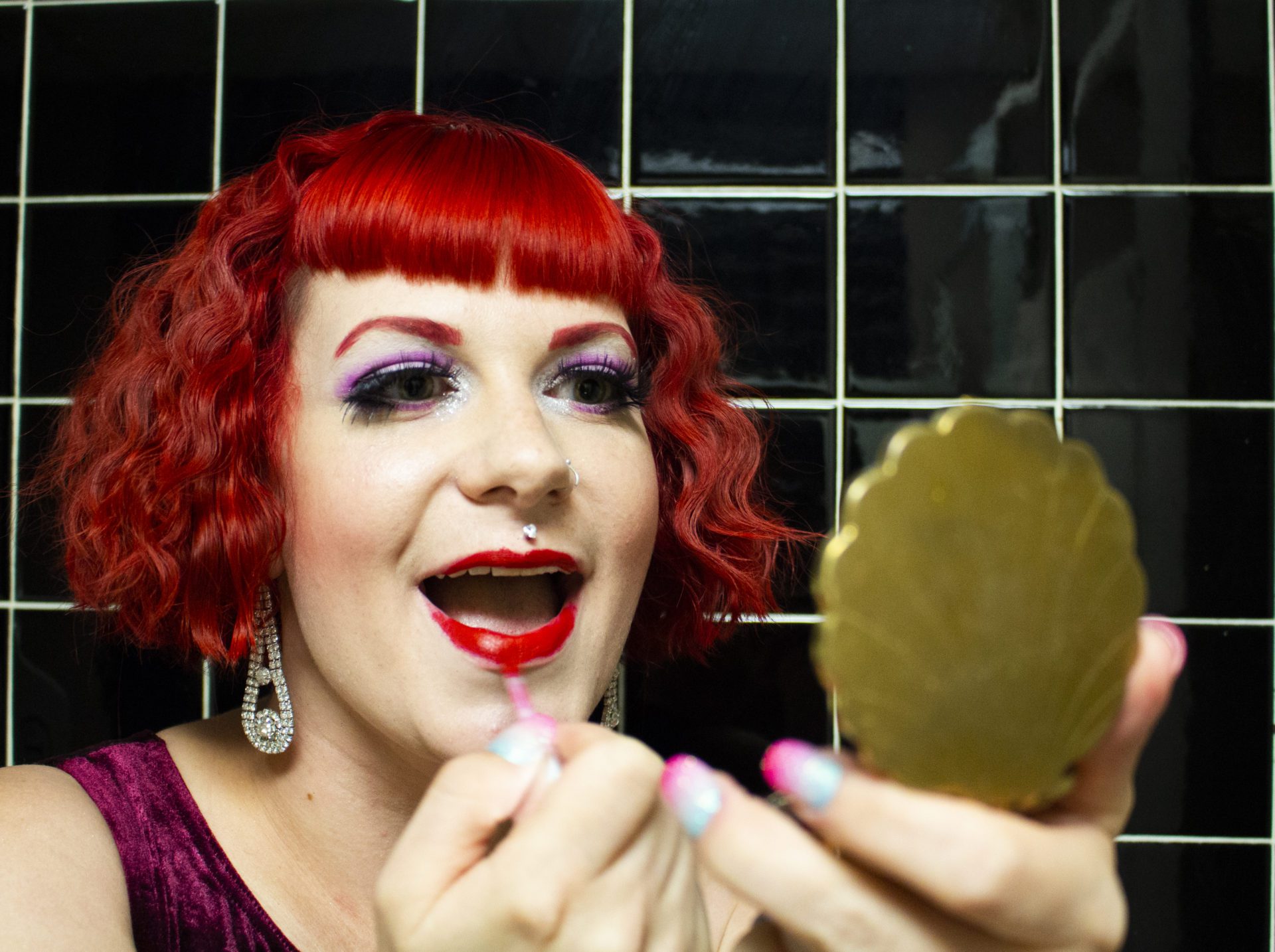Adorned with glittering earrings, voluminous lashes, fiery red hair and scarlet lipstick, Bianca Boom Boom’s appearance is fits her name and her profession — burlesque performer.
The art form gives her the chance to present her own original art without being defined or constricted by rules or societal norms.
Thirty two years old, Boom Boom has been using striptease, dance and revealing costumes to push body positivity forward on stage for more than six years.
“There is a freedom to bring who you are, and what you are on stage in burlesque,” she said. “Getting on a stage is a political act even if our narrative isn’t necessarily the political act itself.”
The Observer has agreed to not publicize the dancers’ legal names to protect their safety and privacy.
I can’t think of anywhere I’d rather be tonight than at the @biartsfestival & @tbn Cabaret celebrating #bivisibilityday with #mypeople #bisexual #pansexual #twospirit #queer #nolabel #queerart #bisexualcommunity 💖💜💙 💖💛💙 pic.twitter.com/DQ2UOOM2ZP
— D'Epressed Unicorn 🦄 (@DArcyLJWhite) September 24, 2018
Boom Boom, who is openly queer. recently appeared at the cabaret performance that finished off Canada’s largest Bi Arts Festival.
She performed a number from the broadway musical, The Drowsy Chaperone, as a “sing-strip” — a striptease with live vocals. It was an homage to Bi Visibility Day, which celebrates the bisexual community.
David Owen, a drama instructor at the University of Alberta, said plus-sized women began to be accepted and celebrated in burlesque in the 1950s. Seeing these types of women began to become normalized in film ended in a resurgence of burlesque called “neo-burlesque.”
Through the movement, plus-sized women have the opportunity to express themselves and defy the societal norms that usually restrain them to perform on stage, he said. Seeing more plus-sized women on stage inspires others, he added.
Indeed, that’s how Boom Boom found her place as a burlesque performer. She explored musical theatre in college, but it wasn’t a perfect fit. She wound up at a burlesque festival after seeing an ad in NOW Magazine. Something clicked.
“There were so many different types of bodies and so many different kinds of acts, glamour, sexuality and costumes,” she said. “It was absolutely breathtaking. Immediately, I thought, ‘I think this is what I’ve been looking for.'”

Bianca Boom Boom performing the same act for the Fierce! Queer Performing Arts Festival, as the Bi-Arts Festival cabaret. (Courtesy of Bianca Boom Boom, taken by Chris Hutcheson)
Her identity as Bianca Boom Boom soon followed.
“When creating a stage name I wanted something descriptive of me and there was something delicious about the delicateness of Bianca and then followed by Boom Boom,” she said.
“Boom Boom is very much me as a human and also my body, too.”
Ivory, 33, is a Toronto-based body positive advocate, burlesque performer and leader of The Succulent Six, a group of plus-sized women who tackle various societal issues they face in a CBC video series. But she was not always so confident in herself.
Watch an episode of the Succulent Six:
She studied performing arts and took up singing, modelling, acting and dancing, which included burlesque. But she gave up dance after graduating from the Randolph Academy of Performing Arts.
It took her 10 years to rediscover her love of burlesque dance with the help of Belle Jumelles, another member of the Succulent Six.

The Succulent Six women, including Ivory (Courtesy of Ivory, taken by Maxwell Lander)
She loved it even more the second go-round because of the political platform it provided.
“You give me a platform where I get to basically construct a performance that from start to finish, I get to give you the character arc, I get to pick the song, the costuming and I get to pick the choreography,” Ivory explained.
“And I get to pick a story I’m telling you. So I can educate you each and every time I step on that stage.”

Ivory finds independence and self-autonomy through burlesque, along with a chance to educate her audience. (Courtesy of Ivory. Taken by Crave Boudoir)
Boom Boom said taking a political stance on stage through burlesque was not her original intention.
“The first time somebody said to me that burlesque was a political act, I was like ‘What are you talking about?’” she said.
Even so, she has become a body positive and queer activist understanding the implications that burlesque has.
Watch Bianca Boom Boom perform in 2016:
Ivory and Boom Boom both struggled internally with their identities and personal pain.
“But growing up queer, fat, and with my mother, who battled cancer for most of my childhood, it made for a pretty angry, depressed adolescence for me,” said Ivory. She said she was diagnosed with clinical depression at 13.
Boom Boom is a survivor of sexual violence.
Through burlesque, the struggles that they faced became easier to deal. The art form became part of their healing process.
“Burlesque has been a reclamation of my body,” Boom Boom said. “A reclamation of my body, of myself, as a person in this world and as a survivor, too.”
Editor’s note: This article has been amended from a previous version to remove Ivory’s full name.

